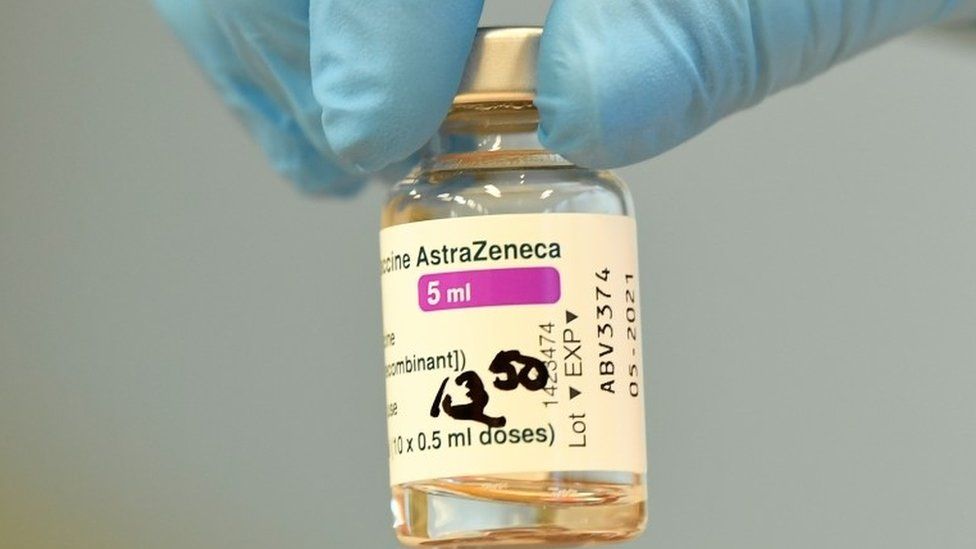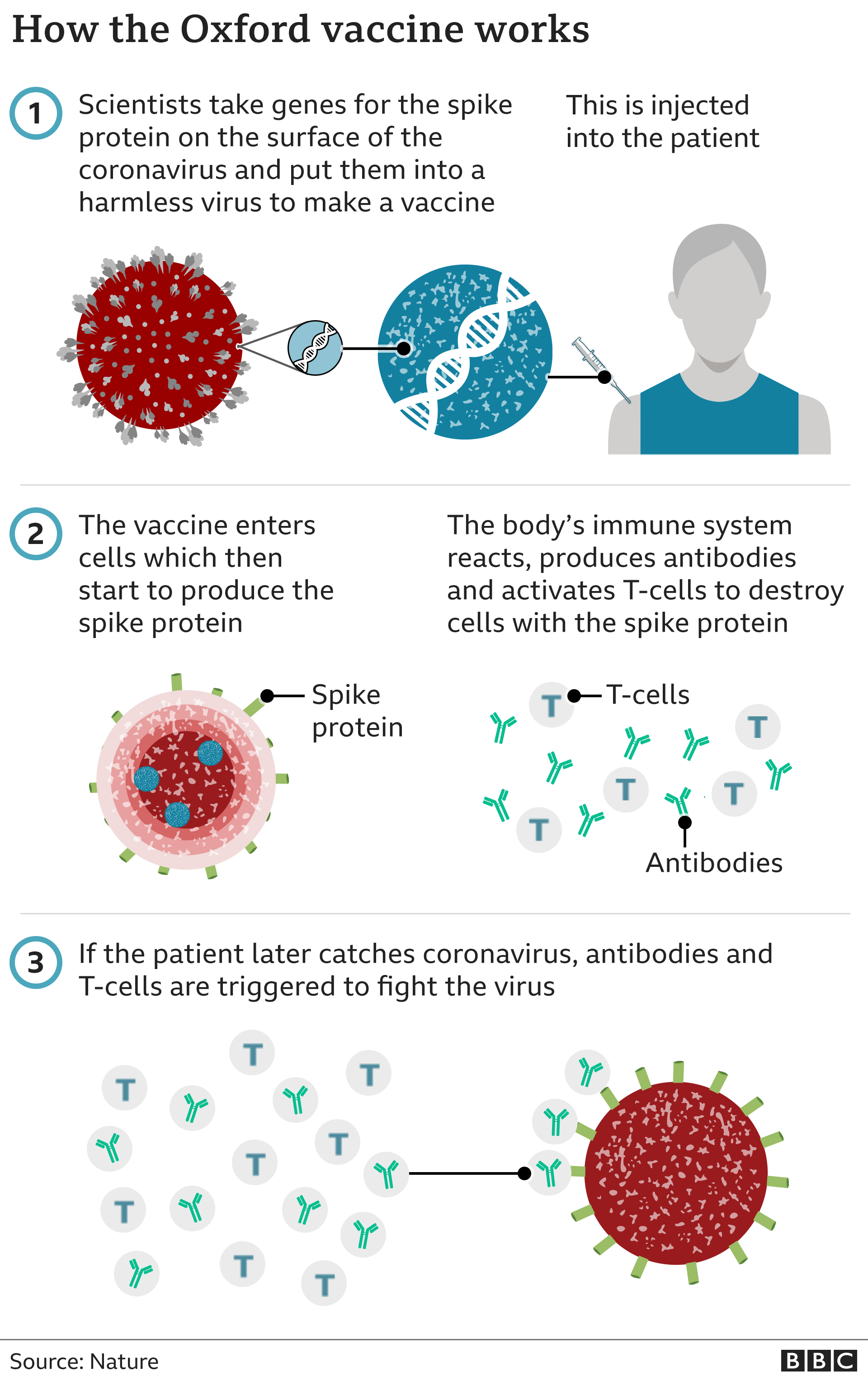The EU's medicines regulator says unusual blood clots should be listed as a very rare side effect of the AstraZeneca vaccine for Covid-19.
After a study looking at 86 such cases in the EU, the European Medicines Agency (EMA) concluded the benefits of the vaccine outweighed the risk.
There was no definite causal link, and although most cases were in women under 60, they also occurred in men.
The EU has vaccinated more than 20 million people.
At a press briefing, EMA executive director Emer Cooke said that the combination of blood clots and low blood platelets was very rare but was seen in "all ages, and in men and women", and there was no available evidence of "specific risk factors such as age, gender, or previous medical history of clotting disorders".
"Our safety committee... has confirmed that the benefits of the AstraZeneca vaccine in preventing Covid-19 overall outweigh the risks of side effects," she said.
Ms Cooke added: "This vaccine has proven to be highly effective - it prevents severe disease and hospitalisation, and it is saving lives."
AstraZeneca has said its studies have found no causal link with blood clots.

The EMA said that one plausible explanation was an "immune response, leading to a condition (heparin-induced thrombocytopenia, HIT) similar to one seen sometimes in patients treated with heparin".
Heparin is a blood thinner used to prevent the formation of clots, and HIT is a potentially dangerous immune-driven adverse reaction to the drug.
EU health ministers will begin a meeting shortly to discuss the findings.
The EMA evaluates and supervises medicine use for all of the EU, including drug approval.
However, this does not mean there has been unity on tackling Covid-19.
Countries within the bloc have diverged widely on vaccination campaigns and on the use of the AstraZeneca jab.
In France, it is now recommended that AstraZeneca vaccinations should be given only to those aged 55 or over. In Germany it is over 60, plus high-priority groups. Norway, not an EU member, and Denmark have a full suspension.
Germany says its under-60s who have received an AstraZeneca first dose should now get a different vaccine for their second.
France, Finland and Norway could consider similar moves.
Studies are still being done on the effectiveness of mixed vaccines.


https://news.google.com/__i/rss/rd/articles/CBMiMGh0dHBzOi8vd3d3LmJiYy5jby51ay9uZXdzL3dvcmxkLWV1cm9wZS01NjY2NTE1MNIBNGh0dHBzOi8vd3d3LmJiYy5jby51ay9uZXdzL2FtcC93b3JsZC1ldXJvcGUtNTY2NjUxNTA?oc=5
2021-04-07 15:18:10Z
52781491296352
Tidak ada komentar:
Posting Komentar